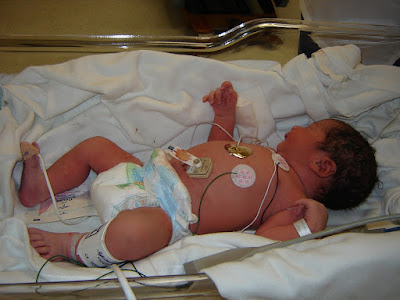Paeditric Cardiologist
 |
| Paeditrication |
Paeditric Cardiologist
Pediatric cardiology is a specialized branch of medicine that focuses on diagnosing and treating heart conditions in infants, children, and adolescents. Pediatric cardiologists are medical doctors who have undergone extensive training to become experts in this field. In this article, we will explore the role of a pediatric cardiologist, their responsibilities, and the typical salary they can expect.
Roles and Responsibilities:
Pediatric cardiologists play a crucial role in the healthcare of young patients with congenital or acquired heart diseases. Their responsibilities include:
Diagnosis:
Pediatric cardiologists are responsible for diagnosing various heart conditions in children. This may involve conducting physical examinations, reviewing medical histories, and performing diagnostic tests such as echocardiograms, electrocardiograms (ECG), and cardiac catheterizations.
Treatment Planning:
Once a diagnosis is made, pediatric cardiologists develop individualized treatment plans for their patients. Treatment options may include medication management, lifestyle modifications, cardiac procedures, or surgery.
Monitoring and Follow-Up:
Pediatric cardiologists closely monitor their patients' progress throughout treatment. They conduct regular follow-up appointments to assess the effectiveness of the treatment plan, adjust medications if necessary, and address any new concerns or symptoms.
Collaboration:
Pediatric cardiologists often work closely with other healthcare professionals, including pediatricians, pediatric cardiac surgeons, nurses, and genetic counselors. Collaboration ensures comprehensive care and optimal outcomes for pediatric patients with heart conditions.
Education and Counseling:
Pediatric cardiologists educate patients and their families about their child's heart condition, treatment options, and prognosis. They provide counseling and support to help families cope with the emotional and practical challenges associated with managing a pediatric cardiac condition.
Research:
Many pediatric cardiologists are actively involved in clinical research to advance the field of pediatric cardiology. They may participate in clinical trials, publish scientific papers, and contribute to medical education and training programs.
Advocacy:
Pediatric cardiologists may also advocate for policies and initiatives that promote pediatric cardiovascular health and improve access to quality care for children with heart conditions.
Salary
The salary of a pediatric cardiologist can vary depending on factors such as location, years of experience, level of education, and type of employer. However, pediatric cardiologists are generally well-compensated due to the specialized nature of their work and the high demand for their expertise.
According to the Medscape Physician Compensation Report 2021, the average annual salary for pediatric cardiologists in the United States was approximately $303,000. However, salaries can range from $200,000 to upwards of $500,000 or more, depending on individual circumstances.
In addition to base salary, pediatric cardiologists may receive benefits such as health insurance, retirement plans, malpractice insurance coverage, paid time off, and continuing medical education (CME) allowances.
Factors Influencing Salary:
Several factors can influence the salary of a pediatric cardiologist:
Location:
Salaries can vary significantly depending on the geographic location. Pediatric cardiologists working in urban areas or regions with a high cost of living may command higher salaries than those in rural areas.
Experience:
Pediatric cardiologists with more years of experience generally earn higher salaries. Experienced physicians may also have the opportunity to take on leadership roles or academic positions, which can further increase their earning potential.
Subspecialty Training:
Some pediatric cardiologists pursue additional subspecialty training in areas such as pediatric electrophysiology, interventional cardiology, or cardiac imaging. Subspecialty training can enhance a pediatric cardiologist's skills and qualifications, potentially leading to higher salaries.
Type of Practice Setting:
Pediatric cardiologists may work in various practice settings, including academic medical centers, children's hospitals, private practices, or multispecialty group practices. Salaries can vary depending on the type of practice setting and its location.
Board Certification:
Board-certified pediatric cardiologists may command higher salaries than those who are not board-certified. Board certification demonstrates a physician's expertise and commitment to maintaining high standards of patient care.
Patient Volume and Demand:
Pediatric cardiologists who see a high volume of patients or specialize in rare or complex cases may have greater earning potential. Demand for pediatric cardiology services can also influence salary levels.
Pediatric cardiologists play a vital role in diagnosing, treating, and managing heart conditions in children. Their responsibilities encompass a wide range of clinical, educational, research, and advocacy activities. While salaries for pediatric cardiologists can vary based on several factors, they are generally well-compensated for their specialized expertise and dedication to improving the cardiovascular health of pediatric patients.






Post a Comment